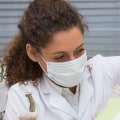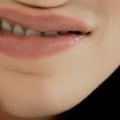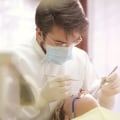Hygienists use a variety of tools and techniques to remove tartar, stains, and plaque from teeth, improving their patients' dental health by preventing tooth decay and tooth loss while helping them achieve the bright, beautiful smile they desire, while helping the patient maintain their general state of health. In addition to general classwork at the university level, the curriculum includes laboratory, clinical, and classroom instruction in subjects such as anatomy, chemistry, clinical dental hygiene, dental materials, microbiology, nutrition, pathology, periodontology, pharmacology, radiography, and social and behavioral sciences. Currently, the only exception is Colorado, which allows licensed hygienists to operate independent offices without the supervision of a dentist, except in state institutions. According to the American Dental Association, hygienists can go to community colleges, technical colleges, dental schools, or universities.
Compared to a dentist, the dental hygienist is the expert who will assess your oral health and apply preventive treatment. Those who are dual licensed as a dental hygienist and ADHT will not have to work under the direct supervision of a dentist. In Virginia, hygienists must obtain a license from the state Board of Dentistry after approving a specific state clinical component. Angel Smile dental hygienists are ready to share their expertise and help you make the smartest choices when it comes to gum health.
Since dentists typically hire hygienists for a few days a week, some hygienists work for more than one dentist to get to full-time hours in the field. Dentists and hygienists will also receive funding for educational programs, financial support to specialize in pediatric or public health dentistry, and support for dental clinics and oral care in health clinics and school sealant programs. Dental hygienists are restricted in most states to practice under the general, direct or indirect supervision of dentists. They also look for signs of problems and advise you on steps you can take to improve your oral health.
When you visit the dentist for a dental checkup and cleaning, your hygienist removes bacteria from your mouth, which basically gives you a fresh start. In accordance with each state's regulations, the dental hygienist assistant can perform coronal polishing, fluoride application, sealant application, and topical anesthetic application. If you or anyone else has an oral health problem, you should see your dentist or seek other professional dental treatment right away.



